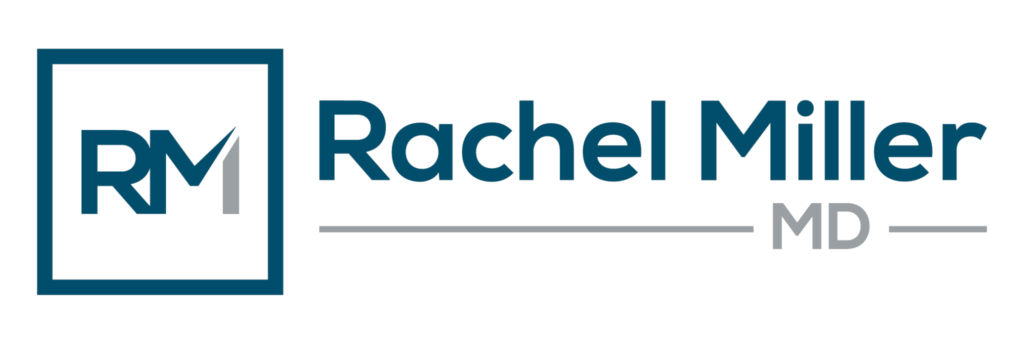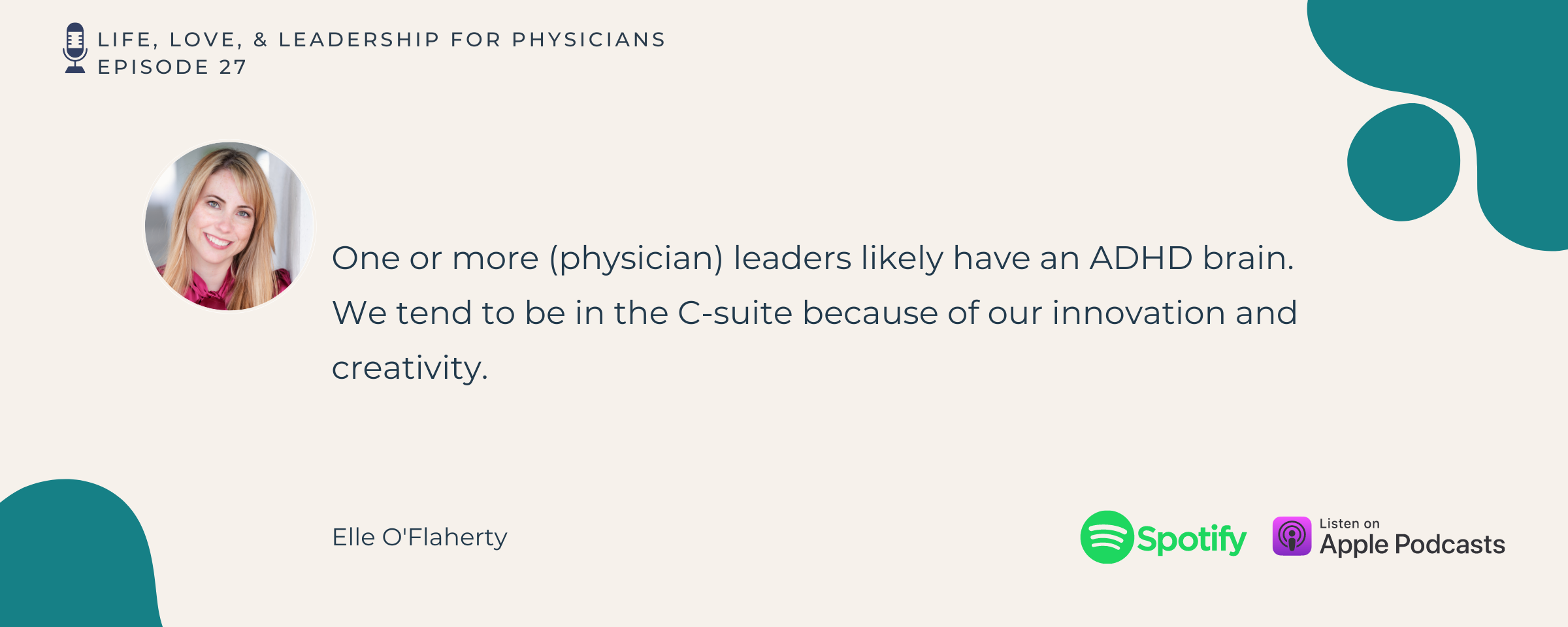Here’s what to expect from this episode:
What comes to mind when you think of ADHD? Despite how common this disorder is, ADHD remains a relatively overlooked topic within the medical field as it relates to leadership. As physician leaders, it’s critical that we address this issue and provide appropriate accommodations for all of our neurodivergent team members.
In episode 27 of the Life, Love, and Leadership for Physicians podcast, we’re diving into ADHD and leadership in the workplace. You’ll learn why ADHD is rarely discussed among teams, how we can foster a more inclusive environment, and valuable insight on how to manage overwhelming tasks effectively – even if you don’t identify as neurodivergent.
Following a 17+ year legal career and certifications in ICF-accredited executive, ADHD, and career coaching, Elle O’Flaherty founded Interlace Solutions, dedicated to tapping into clients’ potential to accelerate their achievement. She coaches executives, executive teams, and professionals with a subspecialty in ADHD coaching. Clients partner with her on leadership, productivity, executive function, workplace culture, prioritization, organization, and building upon ADHD strengths, among many others.
What is neurodivergence and ADHD?
Neurodivergence refers to those whose brain is wired differently than most people (neurotypicals). ADHD, or attention deficit hyperactivity disorder, is a common neurodivergent condition that can present itself in three primary ways.
- Inattentive – These individuals may appear as daydreamers, often lost in their thoughts. They have difficulty sustaining focus, and you may likely question if they heard what you said.
- Hyperactive – This is the stereotypical version of ADHD. Most would associate this with young boys who have an overabundance of energy and bouncing off the walls.
- Combined – Around 60% of ADHDers have a combination of inattentiveness and hyperactivity.
“It’s really been great that now people are recognizing that ADHD can show up very differently in girls and boys, sometimes in adults and children, and especially women have been very much underdiagnosed because folks just didn’t recognize it.”
Up to 68% of professionals never disclose they have ADHD, but why?
Unfortunately, over 90% of neurotypical people have a negative association with ADHD. This can be attributed to the stigma commonly portrayed in the media, with ADHDers being the butt of the joke. A separate study also found that half of those who disclose their ADHD are either overlooked for a promotion, don’t receive their requested accommodation, or are fired.
How can healthcare leaders be more supportive of those with ADHD and neurodivergent conditions?
“First of all, it’s very likely that one or more of those leaders have an ADHD brain. We tend to be in the C-suite a lot. We tend to be founders and, you know, high up in the food chain because of our innovation and creativity.”
To create an ADHD-friendly workplace, it’s critical to recognize and leverage their strengths, especially within leadership. This includes ensuring they have assistance for the more challenging responsibilities, such as administration tasks, so that they can focus on their expertise.
We also need to take tangible measures such as providing online access to various resources, scheduling tools, and handing out written materials so they can have everything in writing. Because short-term memory can be a challenge, it’s also essential to have things available in writing, especially when it comes to tasking, so that information isn’t forgotten or misunderstood.
How can we communicate with leaders who have ADHD?
It’s common for neurodivergent individuals to have difficulty remembering or making final decisions. Because of this, it’s critical to get everything down in writing for both you and your leadership to refer to later. Many individuals with ADHD also prefer concise, visual formats such as bullet points to process information quickly. Lastly, having open conversations about preferred communication styles can foster trust and improve overall workplace communication.
“It’s interesting how much people never talk about okay, well, how do you like to be communicated within the workplace? It’s still so very uncommon, and I think that’s unfortunate. It can build trust and help with that communication.”
How can we motivate those who have ADHD?
There are five key ways to motivate ADHD brains:
-
- Fun – ADHD individuals prioritize tasks based on interests rather than importance
- Urgency – Though the most stressful (and least recommended), this is the most commonly used motivator
- Novelty – Finding ways to make tasks novel or new, even such as using a new pen or notebook
- Challenge – Using techniques such as setting a timer or gamifying tasks
- Interest – Having a genuine interest in the topic
How can physicians with ADHD (and even without) combat overwhelm and burnout?
There are two simple things we can all do to help ease the stress of our neverending task lists. Listen and learn more in episode 27 of the Life, Love, and Leadership for Physicians podcast.



